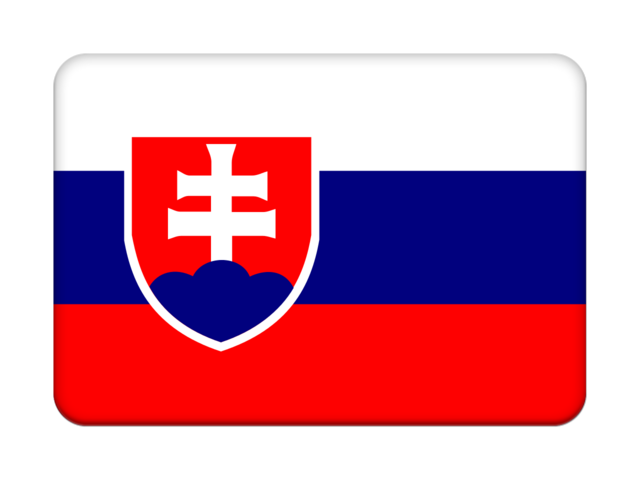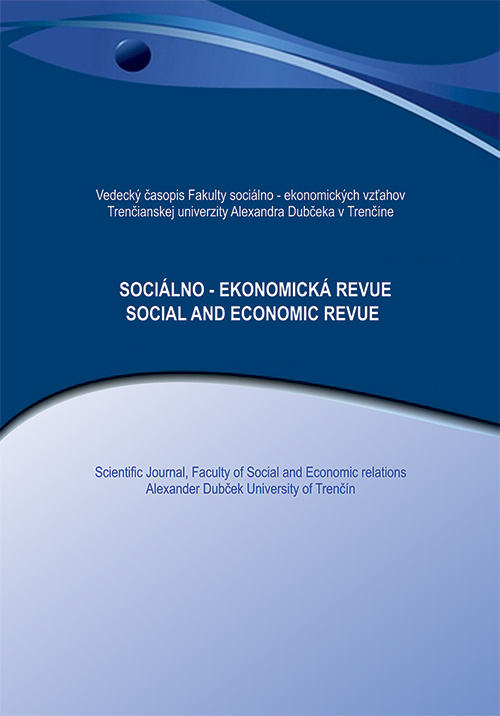THE IMPACT OF BUSINESS EDUCATION ON THE STRENGTH OF MIGRATION FLOWS
An important source of economic growth is undoubtedly human capital that represents knowledge and experience. Its forming is impacted by family environment, especially during the education process is. Education is a process that cannot be underestimated. It needs to be constantly improved, as we still face many challenges in Europe, such as unemployment and transforming the world of work. Risk in the labor market are those who have the problem of finding an appropriate job at their place of residence and have to move to work. The paper focuses on the need for entrepreneurship to be included in the education process, which is a possible solution to the above-mentioned problems. In the European Reference Framework, entrepreneurship is considered to be one of the eight key competences for lifelong learning. The Global Entrepreneurship Monitor surveys show that a higher level of entrepreneurial competence education brings a higher level of perceived opportunities, entrepreneurial intentions, and start-up activities.
Release: 2018/2 Pages: 44-53 JEL classification: A21, J20, J21
DOI:
Keywords: Enterprise, housing, human capital, migration, regional labor markets, regional population
Section: SOCIAL CONTEXT OF THE ECONOMY, LABOR MARKET AND HUMAN RESOURCES DEVELOPMENT
Contacts:
Jarmila Vidová, Ing., PhD.
Faculty of National Economy
Department of Economic Policy
University of Economics in Bratislava,
Dolnozemská cesta 1
852 35 Bratislava
Slovak republic
e-mail: jarmila.vidova@euba.sk
Peter Sika, doc., Ing., PhD.
Faculty of National Economy
Department of Social Development and Labour
University of Economics in Bratislava,
Dolnozemská cesta 1
852 35 Bratislava
Slovak republic
e-mail: peter.sika@euba.sk
Literature:
Baková, D. (2015). Historické súvislosti migrácie a utečenectva vo svete. In: Zborník príspevkov z konferencie s medzinárodnou účasťou: Imigranti v európskej únii. Piešťany: Hotel Park Avenue 15. decembra 2015. Vysoká škola Danubius, Fakulta sociálnych štúdií, Ústav aplikovanej etiky. 2015. s. 47-56.
Bargerová, Z. (2016). Migrácia ako spoločenský fenomén: historické, sociálne a právne aspekty. [online]. [cit 2018-04-07]. Retrieved from: https://www.multikulti.sk/clanky/migracia-ako-spolocensky-fenomen-historicke-socialne-a-pravne-aspekty.
Csámpai, O., Haládik, J. (2002). Medzinárodná migrácia (sociálny problem a bezpečnostné riziko). Bratislava: Akadémia policajného zboru v Bratislave, 2002.
Czikk, P., Čepelová, A. (2006). Vzdelávanie a rozvoj pracovníkov. roč. 2, 2006, č. 2.
Divinský, B. (2009). Migračné trendy v Slovenskej republike po vstupe krajiny do EÚ (2004 – 2008). Bratislava: IOM Medzinárodná organizácia pre migráciu. [online]. [cit 2018-04-07]. Retrieved from: Users/petersika/Downloads/migracne-trendy_iom.pdf.
Orbánová, D., Velichová, Ľ. (2016). Vzdelanie v kontexte cieľov Európskej stratégie zamestnanosti. Revue sociálno-ekonomického rozvoja, 2(2), 74-83.
Rolný, I., Lacina, L. (2001). Globalizace – Etika –Ekonomika. Boskovice: Nakladatelství František Šále – Albert, 2001. 298 p.
Schroth, J. (2003). Mýty o novodobých nomádech. Praha: IOM Medzinárodná organizácia pre migráciu. [online]. [cit 2018-04-07]. Retrieved from: http://aa.ecn.cz/img_upload/5f8b71f9dca70dc91ecc1cd414be5ef0/iom_respekt03_1_.pdf
Toffler. A. (1970). Future Shock. Random House New York 1970.
Veselková, A. (2016). Education as the cornerstone knowledge-based economy. In: Knowledge for market use 2016: our interconnected and divided world. Conference. Knowledge for market use 2016: our interconnected and divided world : international scientific conference : 8-9 September 2016, Olomouc. - Olomouc: Societas scientiarum Olomucensis II, pp. 562-568
Vodák, J., Kucharčíková, A. (2011). Efektívní vzdělávaní zaměstnanců. 2. aktualizované a rozšírené vyd. Praha: Grada Publishing.
Ústredie práce, sociálnych vecí a rodiny (2018). [online]. [cit 2018-04-07]. Retrieved from: http://www.upsvar.sk/buxus/docs/statistic/aotp_2016/Vyhodnotenie_AOTP_2016.pdf.
The European Commission and the OECD on Youth Entrepreneurship in Europe, COM. (2018). [online]. [cit 2018-04-07]. Retrieved from: at: http://ec.europa.eu/youth/news/20120504-youth-entrepreneurship-employment_en.htm.


